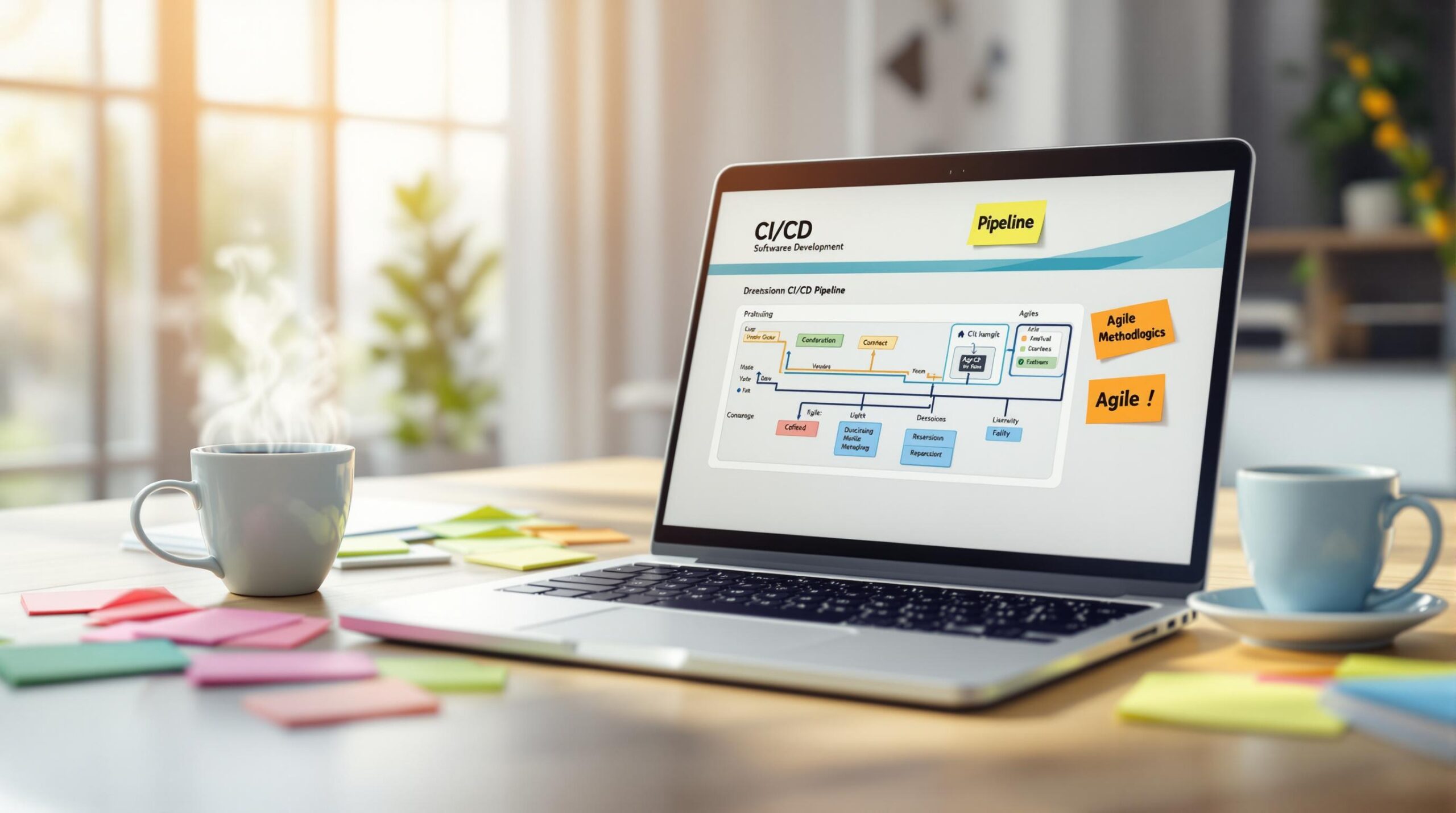Want to ace your IT interviews? Start by improving your English communication skills. Strong English proficiency can increase your chances of success by 40%, especially in technical discussions, behavioral questions, and project presentations. Here’s a quick guide to help you get started:
- Learn technical terms: Use platforms like LeetCode and HackerRank to build vocabulary while practicing coding.
- Practice explanations: Tools like ChatGPT simulate interviews to refine how you explain complex ideas.
- Mock interviews: Platforms like Pramp and InterviewBuddy help you practice both technical and communication skills.
- Build general English skills: Apps like Duolingo and Memrise improve vocabulary, grammar, and pronunciation.
- Real-world practice: Join tech meetups, contribute to open-source projects, and explain technical ideas to non-experts.
With these free tools and methods, you can confidently communicate your expertise and stand out in IT interviews.
Learning Technical Terms for IT Interviews
Developing a strong technical vocabulary is key to succeeding in IT interviews. Understanding terms like data structures, algorithms, and system design can make a big difference. Here’s how to build your knowledge effectively.
Using Coding Platforms to Learn IT Terms
Platforms like LeetCode and HackerRank offer practical ways to learn technical terms while improving your coding skills.
| Platform | Focus Area | Key Features |
|---|---|---|
| LeetCode | Algorithms & Data Structures | Company-specific question sets, interview prep |
| HackerRank | Multiple Programming Domains | Skill certifications, beginner-friendly challenges |
Regularly solving problems on these platforms helps you naturally pick up professional terminology. This approach not only sharpens your problem-solving abilities but also boosts your confidence in explaining solutions during interviews.
Practicing Explanations with AI Tools
AI tools like ChatGPT and Google Bard can be great for honing your communication skills. Here’s how they can help:
- Simulate mock interviews to practice explaining coding solutions.
- Review key programming concepts such as syntax, object-oriented programming, and memory management.
"You gotta know your syntax, type systems, and core concepts like object-oriented and functional programming, not to mention memory management."
By practicing with AI tools, you can refine your ability to articulate complex ideas in a clear and concise way.
Reading Open Source Documentation for IT Language
Dive into documentation for projects like Apache Kafka or TensorFlow to familiarize yourself with domain-specific terms. Technical documentation provides exposure to the kind of language and writing style commonly used in the industry. To reinforce what you learn, consider keeping a glossary of new terms.
"If you’re new to IT and still learning, it might be daunting to read through articles without knowing what any of the words mean."
Once you’ve built a solid foundation of technical vocabulary, focus on practicing how to communicate these concepts effectively in interview settings.
Improving Communication for IT Interviews
Excelling in IT interviews requires not just technical expertise but also strong communication skills. With the right practice and tools, you can improve how you present your ideas and experience. Here’s how to get started.
Practicing with Free Mock Interview Tools
Mock interview platforms are a great way to simulate real IT interview scenarios. They help you practice both technical and communication skills in a structured environment. For example, Pramp allows you to take on the role of both interviewer and interviewee, giving you insights into the interview process from both sides.
| Platform | Key Features | Best For |
|---|---|---|
| Pramp | Live coding interviews, peer feedback | Algorithm and system design practice |
| InterviewBuddy | Recorded sessions, professional feedback | Soft skills and communication |
| KodNest Mock Interviews | AI-driven feedback, unlimited attempts | Full-stack development interviews |
These platforms can help you refine your problem-solving explanations and improve how you present your experience.
Explaining Problem-Solving Clearly
During technical interviews, clear and structured explanations are critical. Use a simple approach to communicate your thought process:
- Summarize the problem and your strategy for solving it.
- Walk through the key steps of your implementation.
- Discuss trade-offs and consider alternative solutions.
"Effective communication involves conveying information clearly, actively listening to others, and ensuring mutual understanding." [1]
Tailor your explanations to your interviewer’s technical background. If they ask follow-up questions, respond in a way that balances simplicity and technical depth. Practice breaking down complex ideas into easy-to-understand terms without losing accuracy.
Talking About Projects and Experience
IT interviews often include discussions about your past projects and work experience. These conversations are a chance to highlight your technical skills and teamwork. Focus on specific challenges you faced and the measurable results you achieved. For example: "I optimized database queries by implementing indexing, cutting response times by 40% for 10,000 daily users."
When describing your projects, focus on:
- The technical challenges you solved.
- The tools, technologies, and methodologies you applied.
- The measurable impact your work had on users or the business.
This approach not only showcases your expertise but also demonstrates your ability to communicate effectively with both technical and non-technical team members [2].
sbb-itb-f454395
Improving General English Skills
Building strong English skills is crucial for clear communication in IT interviews. Thankfully, modern tools and resources make it easier than ever to build these skills step by step.
Using Free Language Learning Apps
Apps like Duolingo, Memrise, and Tandem offer convenient ways to improve your English while keeping things interesting. Here’s how they can help:
| App | Key Features | Best For |
|---|---|---|
| Duolingo | Fun, interactive lessons with daily goals | Expanding vocabulary, mastering basic grammar |
| Memrise | Offers 200+ language courses | Learning technical terms and context-based usage |
| Tandem | Connects you with native speakers | Practicing conversations and understanding cultural nuances |
These apps are great for building a habit of daily practice.
Learning English Through Immersive Methods
"Language learning is not just about memorizing rules and vocabulary; it’s about using the language in real-life situations" [3]
For IT professionals, immersing yourself in English-language tech content is a smart move. Read blogs, participate in forums, and watch conference talks in English. Also, set your devices and tools to English. This way, you’ll get used to discussing technical topics in English, which is especially helpful during interviews.
Improving Grammar and Pronunciation
Clear grammar and proper pronunciation are key to sounding professional.
- Grammar Tools: Grammarly offers instant grammar checks, while Readlang helps with reading skills. For more advanced training, explore resources like DNI.gov.
- Pronunciation Practice: Platforms like YouGlish let you hear how technical terms are pronounced by native speakers with various accents, helping you sound more natural.
Once you’ve strengthened these foundational skills, start applying them to real-world scenarios to prepare for IT interviews confidently.
Practicing Communication in Real Scenarios
Once you’ve built a solid foundation, the next step is to practice English communication in settings that mirror IT interviews. Real-world practice helps you refine your skills and gain confidence.
Joining Tech Meetups and Groups
Platforms like Meetup, Discord, and LinkedIn Groups offer chances to engage in professional conversations. These spaces often simulate the collaborative discussions you’ll face during technical interviews.
| Platform | Best For | Key Benefits |
|---|---|---|
| Meetup | In-person networking | Live presentations and Q&A sessions |
| Discord | Online tech communities | Real-time text and voice discussions |
| LinkedIn Groups | Professional networking | Industry-specific conversations |
Set a simple goal for each session: ask one technical question or share a brief insight. This helps you build confidence while improving your ability to communicate in professional settings.
Contributing to Open Source Projects
Open source projects like TensorFlow, React, and Linux are great for honing both technical and communication skills. You can start small by improving documentation, engaging in issue discussions, or submitting pull requests. These tasks allow you to practice explaining your work and responding to feedback.
Focus on writing clear commit messages and pull request descriptions. Highlight the ‘what’ and ‘why’ behind your changes. This skill directly applies to interviews, where you’ll need to articulate your technical decisions effectively.
Explaining Technical Ideas to Non-Experts
When talking to non-experts, avoid jargon and focus on practical outcomes. Use relatable examples to simplify complex ideas. For instance, instead of diving into technical details about a database optimization project, you could say: "We reduced page load times from 5 seconds to 1 second, making it easier for users to find what they need quickly."
This approach is crucial because interviewers often include both technical and non-technical team members. Your ability to explain concepts clearly to diverse audiences can make you stand out.
Conclusion
Improving your English communication for IT interviews requires focus, a clear strategy, and the right tools. Pair structured learning with hands-on practice to see the best results.
Platforms like Duolingo, Grammarly, and HackerRank can help you strengthen both your language and technical communication skills. These tools create a supportive environment to refine how you express complex ideas.
Clear communication not only boosts your interview performance but also improves teamwork and career growth in the global IT industry. Engage in tech communities, contribute to open-source projects, or practice with mock interview platforms to build confidence in explaining technical concepts.
The tips and methods shared here provide a solid starting point for mastering communication in IT interviews. By balancing technical knowledge with clear, effective articulation, you’ll be ready to present your skills in any professional situation.
Related Blog Posts
- Decoding the Interviewer’s Mind: What They’re Really Asking in Java Fresher Interviews
- Cracking the Code: How to Approach Java Coding Challenges in Interviews
- How to Ace Your First Technical Interview Using HackerRank Practice
- Cracking the Coding Interview: HackerRank and LeetCode Strategies for Freshers





